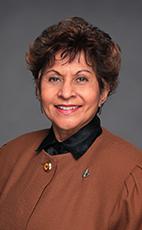Mr. Speaker, I appreciate the opportunity to take part in this debate on Bill C-272, an act to amend the Immigration and Refugee Protection Act.
The bill purports to help bring more people and their loved ones to Canada by expanding the current definition of family class. The bill would expand the family class to include siblings, children over the age of 22, aunts and uncles, nieces and nephews, and first cousins. Canadians who are permanent residents would then be allowed to sponsor, once in their lifetime, one of these relatives in addition to those already included in the family class.
I think we all support the principles of the bill and its goal to strengthen the family class. Families bring a sense of stability for many newcomers and often make it much easier for them to adjust to their new lives in Canada. Family reunification also represents a cornerstone of Canada's immigration and refugee program.
The actual provisions of the legislation before us today, however, are unsupportable for a host of reasons.
Canada's recent experience with the removal of limitations on sponsorships clearly demonstrates the flaws in the private member's bill under consideration.
In 1988, the government of the time changed the sponsorship rules to include all unmarried sons and daughters in the family class. Total intake in this category nearly doubled over two years, going from 53,033 in 1987 to 104,199 in 1989.
What did it result in? The increase from 1987 to 1989 consisted almost entirely of never married children of any age and created a massive eight year backlog.
I was quite surprised by some comments made by members opposite. The member for Fleetwood—Port Kells has totally misunderstood the proposal. It just shows how little the member understood the proposal. On one hand, she talked about a huge backlog, forgetting that the backlog was caused by mismanagement of the immigration system by the then Conservative government. It could not manage the system. It had no processes in place and created havoc, which the Liberals then had to handle in 1993.
However, coming back to the proposal under debate, if it were implemented today the family class could potentially overwhelm the immigration program. Who would that benefit? It would benefit neither Canadians nor the newcomers we bring to Canada every year.
The hon. member for Burnaby—Douglas says that the bill is necessary because the government currently achieves only 66% of our annual immigration target every year. This is simply not true.
The hon. member will know that preliminary numbers indicate that last year represents the fifth year in a row that the Government of Canada has met or exceeded annual immigration targets. These targets are set by government each year, in close cooperation with the provinces and territories, as well as other partners and stakeholders.
The hon. member also noted in the last hour of debate that Bill C-272 would make it easier for refugees to reunite with their families.
The truth is that this bill would do little for refugees since family sponsorship is a more financially burdensome course than what is presently available to refugees.
The Government of Canada is fully committed to enhancing the opportunities for family class sponsorship. From 1998 to 2003 the family class in Canada grew from 50,897 to 69,128. That represents an increase of more than 18,000 immigrants in the family class in six years. Such a track record is impressive.
The government introduced new regulations in 2002 to allow even more individuals to sponsor family members and to facilitate the processing of family class sponsorship applications.
The regulations expand the family class to include common-law and conjugal partners of the opposite sex and same sex. They also recognize longer child dependencies and other obligations, such as military duty in some cases, by broadening the definition of a dependent child to include those under the age of 22.
As well, the regulations reduce the age at which Canadian citizens are eligible to sponsor from 19 to 18 years of age. The period of sponsorship undertakings has also been reduced in many cases from 10 years to 3 years.
New application rules have also resulted in the faster processing of applications made on behalf of spouses, common-law partners, conjugal partners and dependent children.
In pursuing these changes, the government has remained mindful of the need to enhance the ability of individuals to sponsor family members while ensuring that the immigration program is managed in a balanced and sustainable way. This approach is clearly in the best interest of every Canadian, every newcomer and every community in the country.
The changes proposed in Bill C-272 run counter to these principles of fairness, balance and sustainability and therefore are not supportable.
We agree with the idea of strengthening families in general and of making it easier for families to reunite with their loved ones. Our recent actions to include out of state spouses in the in-Canada class and the government's commitment to assist the remaining Vietnamese boat people supports and reinforces this commitment.
However the government also has a duty to properly manage the immigration program and ensure that the principles of fairness, integrity and balance are upheld. We therefore cannot support Bill C-272 or any other special provision that fails to take these considerations into account.

